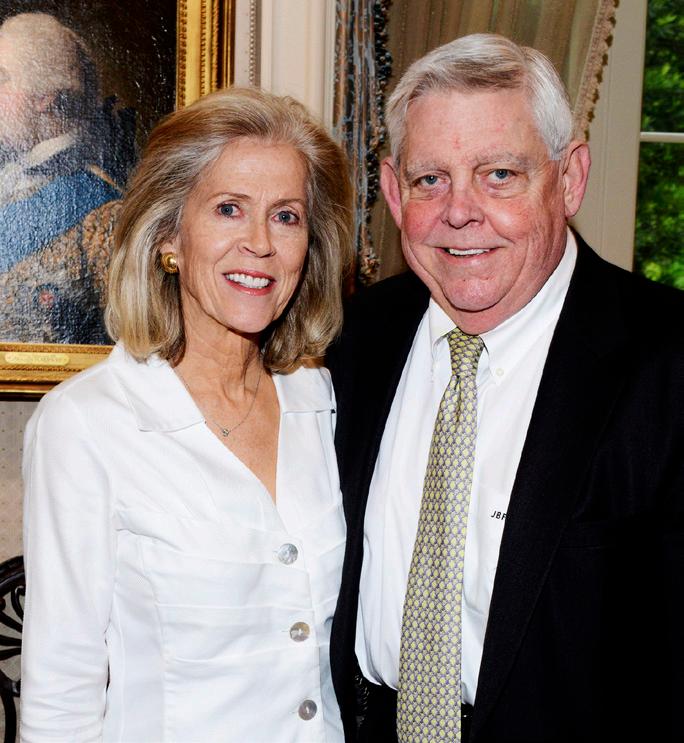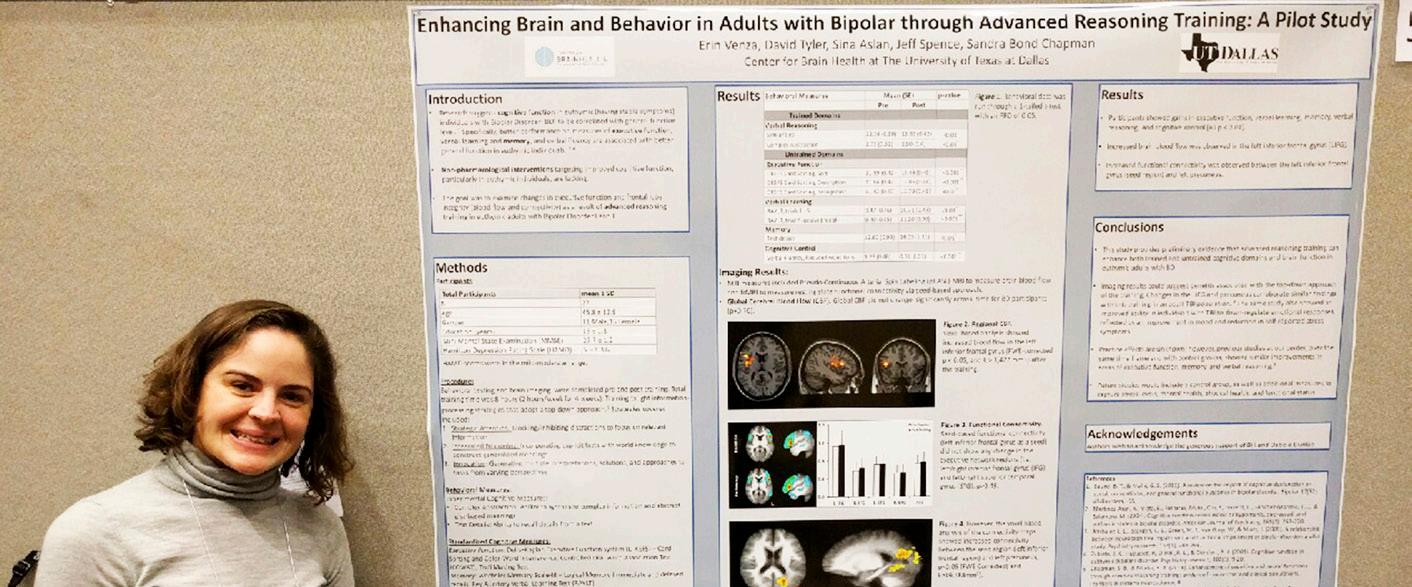
2 minute read
MAPPING UNCHARTED TERRITORY
from Newletter Q2 2016
by BrainHealth
“Our family has been honored to see the legacy of my father recognized and extended through the Charles L. Branch BrainHealth Award,” said Charles Branch Jr., M.D., chair of neurosurgery at Wake Forest Baptist Health University. “We really appreciate the opportunity to participate in a perpetuation of great science that investigates how the brain works in order to unravel the mysteries of the mind.”
Behind your eyes and in between your ears lies uncharted territory. Two men of two diferent generations were both determined to map brain function – one using surgical tools and the other mathematical models. The paths of these cartographers, Professor Karl Friston, FRS, FMedSci, and Charles Branch, M.D., Sr., intersected on April 14 at the Reprogramming the Brain to Health Symposium at the Center for BrainHealth.
Advertisement
The late Dr. Charles Branch, Sr., was a leading research scholar, neurosurgeon and humanitarian, and his pioneering and groundbreaking work aided in creating a definitive approach to mapping brain function, alleviating the burden of epilepsy for countless individuals over the years.
In 2010, the Center for BrainHealth established the Charles L. Branch BrainHealth Award to honor Branch for his lifetime achievement. Each year at its annual scientific symposium, the Center for BrainHealth presents the award to a pioneering cognitive neuroscientist whose innovation has made a tremendous contribution to the area of brain research.
This year’s recipient, Dr. Karl Friston, who is considered the father of modern brain mapping, was honored. Dr. Friston is the Wellcome Trust Principal Research Fellow and Scientific Director of the Wellcome Trust Centre for Neuroimaging, Professor at the Institute of Neurology at University College London, and an Honorary Consultant to the United Kingdom’s National Hospital for Neurology and Neurosurgery. Dr. Friston is one of the most prominent and prolific researchers in the field of neuroimaging. He invented a technique that has been cited in research publications approximately 150,000 times.

“Understanding the complexity of the brain and exploring how brain health research can lead to individualized treatment plans is the future of the field,” said Sandra Bond Chapman, Ph.D., founder and chief director of the Center for BrainHealth. “Dr. Friston is a pioneering, futuristic thinker who has contributed immeasurably to furthering brain health discoveries.”
The 2016 Symposium highlighted neurology and advances made in computational psychiatry, an emerging field that seeks to use neurobiological information to inform individualized therapies.
“The future of mental health will be to depart from the one-pill-fits-all era to an age of individualized care that can specifically target an underlying disorder based not only on behavior, but also neural data,” said Xiaosi Gu, Ph.D., assistant professor at The University of Texas at Dallas and head of the Computational Psychiatry Unit at the Center for BrainHealth, who helped organize this year’s event.
“Using imaging technology and advanced analysis, we will one day be able to objectively measure psychological well-being and evaluate the efectiveness of treatment and therapy,” said Gu. At the Symposium, scientists discussed how computational psychiatry is informing their research in anxiety and impaired decisionmaking, depression, addiction, schizophrenia, rehabilitation and cognitive dysfunction, and what networks are associated with thought and decision-making. The event is a collaborative efort with the Helen Wills Neuroscience Institute at The University of California, Berkeley.










